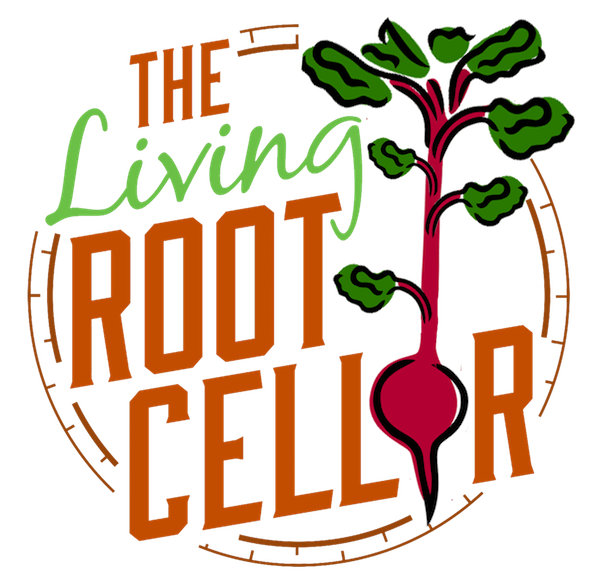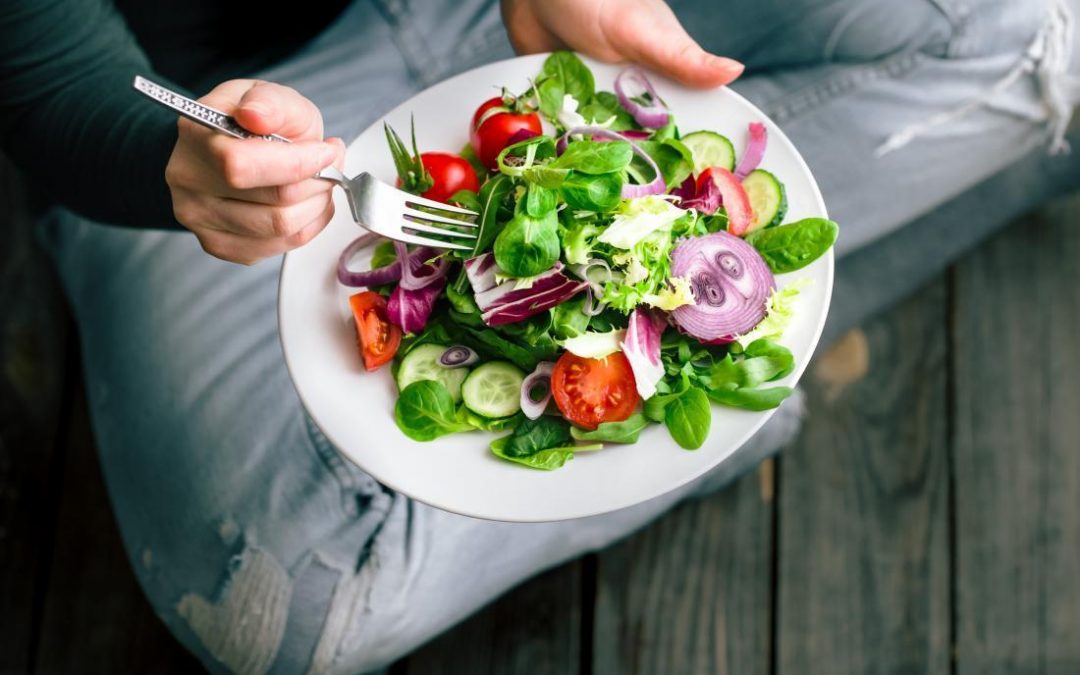The first step in nourishing your immune system? Eating fresh, whole-plant foods every day, at every meal
By now, we all know about COVID-19, a new coronavirus that threatens to affect the whole world. Many people are reacting, expecting the worst. Because of this worldwide panic, common sense and wisdom are the first casualties affecting the masses—even before the threat of the virus arrives.
This blog post provides guidance and highlights the truth to help you gain a clearer perspective in order to better protect yourself and your loved ones, worry less, and be at peace with the knowledge you’ve done all you can do within your control to be ready if the COVID-19 virus arrives at your doorstep.
First, it seems appropriate to point out that this is flu season. As such, it also seems appropriate to review what we’ve learned from the history of the flu, which is also a coronavirus. According to the CDC (Centers for Disease Control), the flu has been around for hundreds of years; some people die from the flu, but many more recover. The CDC also reported that in 2017 in the U.S. more than 55,000 people died from the flu and pneumonia, with no data on how many people recovered.
To date (March 20, 2020), confirmed cases of COVID-19 worldwide stand at nearly 275,000, with more than 11,000 deaths and nearly 91,000 people who have recovered, as reported on worldometers.info. The point here is that the flu is nothing new, though COVID-19 is a new strain of the virus.
Both medical and governmental experts agree that the people most susceptible to or at the highest risk of dying from a viral infection are the elderly (over 65), the very young (under 5) and people whose immune system is compromised due to an underlying health issue (e.g., cancer patients on chemotherapy). Common sense and wisdom dictate we ask:
What is it about the rest of the population that decreases their risk of developing serious complications or death from COVID-19?
First, it must be stressed that resistance to COVID-19’s more serious complications is not due to a vaccine, as one has not yet been developed. So, if most of those who have tragically died from infection were over the age of 50 and/or had an underlying health issue, and those that recovered did so in the absence of a vaccine, we can safely deduce that their age, relative good health, or the strength of their immune systems helped them recover. This is not to say medical intervention has no role to play—our medical professionals do wonders at keeping us alive—it simply means the body’s program to heal itself is wiser and more powerful than anything humans can come up with.
This brings me to my main point: God created our body to heal itself; nothing we do can change that. Through our life choices, we can either cooperate with it, or inhibit it; we can either keep it strong or weaken it—and I believe we have a duty to work to strengthen it, always. Also important, sometimes a genetic predisposition for a weak immune system results from our parents’ or grandparents’ choices or exposures to chemicals, both of which are out of our control. Although this might seem unfair, this works both ways. That is, your parents’ good habits would give you good genes, and vice versa. This demonstrates God’s law of sowing and reaping in action; much like the law of gravity, it affects all of us, regardless of health or age.
Therefore, wisdom dictates that if we have both a desire and duty to be in good health, regardless of genetic predisposition, we must be intentional and deliberate in taking care of our immune system to do our best to prevent ourselves from getting sick.
So, what are the seeds of prevention we can plant in our favor? I submit to you that there are two types of prevention: external and internal. As for the external, the following points represent some of the more commonly recommended precautionary measures:
- wash your hands and keep hand sanitizer with you
- don’t shake hands with someone who is sick, bump elbows or take a bow
- avoid crowded rooms or spaces, especially those with poor ventilation, e.g., planes
- wipe down surfaces and objects touched often, e.g., TV remote, phones, door knobs, grocery carts
- limit travel to essential business; drive instead of flying, or do work online
- stay away from someone with a cough or who you suspect may be ill
- if you think you might be sick, cover your cough, stay home or avoid contact with others
Protecting ourselves begins on the Inside
Now, despite this sound advice, we see little to NO emphasis placed on the importance of strengthening our immune systems. Whereas hand sanitizer and keeping your distance are all good, they do nothing to protect you from the INSIDE. How can we support our immune systems?
Before I answer that, I must point out there is no guarantee ANY combination of strategies will make you immune—including vaccines. The truth is, there is no immunity to this or any virus, as the medical concept of immunity is contrary to God’s law of health. The medical implication is that if you are immune to something, you will not be susceptible to the disease and remain in good health. In fact, conventional western medical wisdom defines health as being the absence of disease.
However, this definition of health is wrong, as it implies the disease has power over your health. This medical theory opens the door for it to be used to silence the truth that our bodies have incredible power over a virus. And yet, no word exists to describe the power of the body’s immune system to eliminate a virus, and thus return the body back to health.
It’s easy to say that someone who has been infected with the virus is contagious and by default, is now a threat to everyone else. But there is no antonym to “contagious” and no word to describe the fact that the body’s immune system has power over the virus and is programmed to eliminate it from the body to return the body back to health. I believe this medical definition of disease—which is based on the germ theory of disease—is incorrect and inconsistent with the laws that govern life on our planet.
The truth is, disease is the absence of health, in the same way that darkness is the absence of light. In other words, there is NO source of darkness, only the absence of light; there may be causes of darkness, as in a tree that causes a shadow, but a tree does not produce the darkness. In the same way, the body does not produce the illness; rather, illness stems from an absence of true health. That is, something has, or is, interfering with the body’s ability to properly heal itself; and this is what we see with those most at risk of dying from a virus; their health has been compromised and is not strong enough to recover from the infection. It is an illusion that having an absence of disease means you have good health. The truth is that most of us are walking time bombs in poor health; a viral infection doesn’t cause disease; instead, it reveals the true illness. Let me be clear: this explanation of how the body is meant to function should not be construed as a “natural cure.” It is the simple truth.
I’ll paint the picture in a different way: A virus does not produce the ill effects we feel; rather, it is the body’s immune system doing battle that produces the symptoms. The body’s program for healing is so strong that it may compromise other functions in the body in an attempt to rid the body of the virus. If the body is not strong enough, it can lead to further health complications and even death.
The fever and the phlegm are NOT the illness; they are the body’s healing response. Simply put, the fever kills the virus and the phlegm carries the waste away. These symptoms provide evidence the body’s immune system is doing its job—and we ought to cooperate with the body by taking proper care of ourselves before—as well as during and after—the healing process. This process represents God’s law of health and it is our duty to cooperate with it. A weak immune system is the true illness.
With this in mind, how can we strengthen our immune system? How do we facilitate healing if we get infected? And what does the law of health require we do to be in good health and thus better our chances to recover from an infection?
Most of us already know which things are unhealthy—such as junk food, smoking, alcohol, and stress—but we’re not always clear on what builds our immune system. Think of building your immune system as tuning one of many instruments in an orchestra—all playing the same musical score. When it comes to optimal health, what we do to strengthen our immune system ought to benefit the other systems in our body, and vice versa. Our bodies are highly complex biomechanical machines and what works perfectly for one person may not be exactly the same for the next. Therefore, the following points can be taken as individual steps; there is no magic formula.
Recommendations for supporting your body’s natural defenses
For the sake of these flu season recommendations, and in addition to what I’ve already written on precautionary measures, here’s what you should do to strengthen your immune system and nourish mind, body, and soul:
- Nourish—Eat fresh, whole-plant foods every day at every meal, e.g., fruits, vegetables, legumes, grains, nuts, and seeds. Take a probiotic. Supplement with vitamins C & D, especially during this flu season; if you are vegan, take a B-12 supplement as well. Drink raw green juice.
- Exercise—Get physical activity in the fresh outdoors for 30 to 60 minutes per day.
- Water—Stay well hydrated; drink 64+ ounces of water daily.
- Sunshine—Spend time in the sun for 2 to 4 hours per day (but don’t sunbathe or tan in the sun as too much sun causes oxidative stress).
- Temperance—Eliminate sugary foods or junk foods, e.g., fast food, highly processed foods rich in white flour, oil, and sugar or salt. Avoid taking over-the-counter medicines that “relieve” symptoms. Manage stress wisely: limit TV, social media, and screen time. Manage time wisely!
- Air—Make it a point to breathe clean, fresh air as often as possible.
- Rest—Get 8 hours of restful sleep every night, take a Sabbath rest (one day per week to “shut it off”) to regroup your values and priorities. If you’re ill, rest as long as it takes to recover.
- Trust in God—Be grateful, forgive others, live humbly, and bless others.

Getting more fresh air and sunshine strengthens your immune system to better fight disease
Additionally, because much of our “fresh” produce today is half as nutrient dense as it was 100 years ago, I recommend you buy organic produce, especially those items on the “Dirty Dozen” list.
If you do become infected, the following recommendations will help you cooperate with your body while it works to restore health:
- STAY HOME and nurse yourself as much as possible. Don’t hesitate to get needed help if symptoms get worse.
- Keep your house warm, but well ventilated.
- Drink plenty of water and herbal teas (chamomile, lemon grass, green tea, etc.)
- Take 3,000 to 5,000 mg of vitamin C per day, along with a supplement of Echinacea, elderberry, mushroom powder, or ginseng
- Cook with these antiviral herbs or foods: garlic, oregano, rosemary, fennel, and ginger (see this healthline.com article for a complete list of antiviral herbs).
- Rest until symptoms have subsided, which can be 1 to 3 weeks depending on the strength of your immune system. Tip: Watching TV or spending time online is NOT restful! Unless you have a fever, taking short, light walks in the fresh outdoors is better than being stuck in the house all day and all night.
Lastly, it is my belief that these strategies are things we ought to do all the time, not just when we are sick or there’s a pandemic. To expand on the saying, “an ounce of prevention is worth more than a pound of cure,” the time to learn to drive in wet, rainy conditions is not after you’ve hydroplaned off the road, but before. Whereas wearing your seatbelt may protect you during an accident, knowing how to drive during a storm or in hazardous conditions helps you prevent an accident in the first place and puts you more in control and more at peace.
The same is true of your immune system. Like an army in a state of readiness, take steps to keep your immune system strong NOW. Don’t wait to do something until you feel ill; start nourishing your body TODAY.


Wonderfully written Sam!
God bless you and all your AMAZING STAFF!!♥️🥰
Thank you Nikki. I don’t get many comments so I forget to check from time to time. FYI, we have a seminar coming up on April 10.